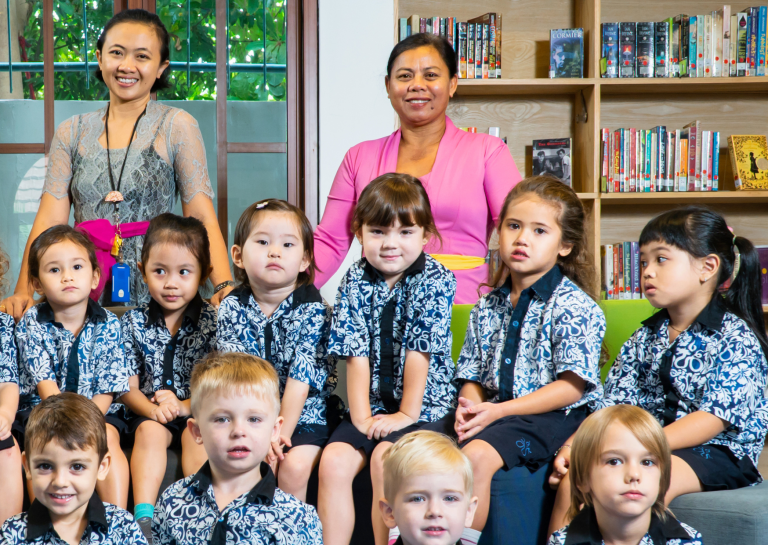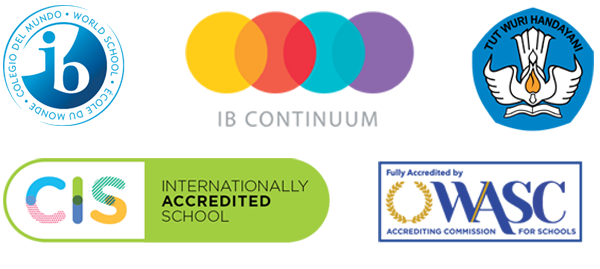World Children’s Day
Beginning as Universal Children’s Day in 1954, the United Nations adopted the Convention on the Rights of the Child in 1989, which came into force in 1990.
That means this marks 33 years since the convention became effective and become the day when we promote awareness about children’s welfare and how all children hold the right to quality education.
To celebrate World Children’s Day today, we talk to two teachers about their take on improving children’s lives.
Charles (Grade 5 Homeroom Teacher):
How do you encourage your students to use their voices in the classroom/ in this world?
In my classroom, I encourage students to speak with me or write me a note if they have anything to say. Students understand that they have the right to say, “I’m not sure if this is fair.”
We do lessons on what it means to be a whistleblower and an upstander, and practice presentation skills such as speaking loud, proud, and clear.
We also play games to develop risk-taking behaviour.
Our class meetings allow the children to share anything they are excited about as it channels them to contribute to a problem and realise that “Sometimes if you are not part of the solution, you may be part of the problem.” The students are well aware that their voices will always add value.
Can you share specific activities or projects that are IB-based where students actively contribute to decision-making or express their perspectives?
We have many outlets which allow students to take part in those areas. Some of them are:
- We created our own countries with the justice system, laws, and top SDGs.
- Creation of Inventions to solve a world problem and then present them
- Focusing on “keeping the conversation going“, how to argue nicely, and organise a debate session on “Social media use by children.”
- Persuasive papers that focus on the Sustainable Development Goals of the student’s choice.
- Social Justice Screen Print as a collaborative project with 8th & 9th-grade Art students
- Creation of posters on the benefits of being open-minded and created “hoodies” that expressed students’ interests.
If you were granted one wish for the children in the world, what would that be?
I wish for the children to grow up being kind by adding value to people and places

Siska (Preschool Homeroom Teacher):
How do you encourage your students to use their voices in the classroom/ in this world?
I believe the ability of children to speak up can be built when they are young. Therefore, I always encourage my students to get involved in making decisions.
In Preschool, we have circle time in the morning to discuss the plan for the day and the news they have. In that circle time, the students could give their ideas on how we do things at school that day or matters that relate to the play they are doing.
“Can we make a marble run or domino game using the blocks?”
“We wanna build a house with cushions here Ibu. Can we do it?”
I would support them by asking how I could help and how to make sure they are safe. They will put their ideas into action during the free inquiry period. My class may look messy, and it is a sign that there was a lot of thinking, problem-solving, and communication happening in that safe space. If they feel safe to use their voice in the classroom, they will be able to use it in different contexts in their everyday life.
Can you share specific activities or projects that are IB-based where students actively contribute to decision-making or express their perspectives?
It happened last academic year when we learned “Sharing The Planet” as a unit of inquiry. At that time, we learned that animals and plants have basic needs, and it’s human’s responsibility to help them with those needs.
Using the lens of responsibility as our concept, the students came up with various ways to help the stray animals around our school. They then mentioned making food bowls for the strays. They then prepared a charity show where they performed songs to gather funds from the audience. They then bought the materials to make the bowl and the food for the strays and committed to supply some food every day inside those bows. Once they saw the stray animals eat the food and drink the water, they felt proud and happy that their ideas worked well.
If you were granted one wish for the children in the world, what would that be?
“Let them experience many things so they know how the world they live in works.”



